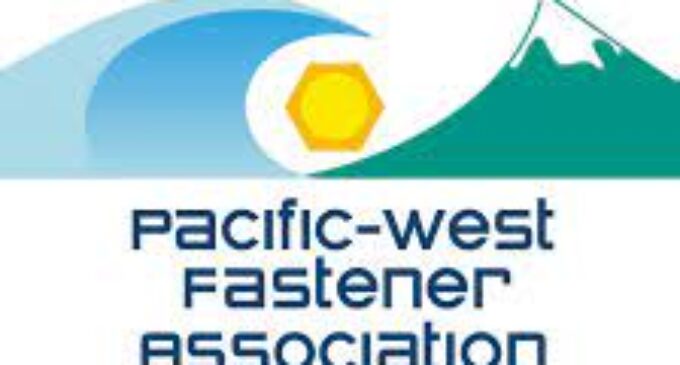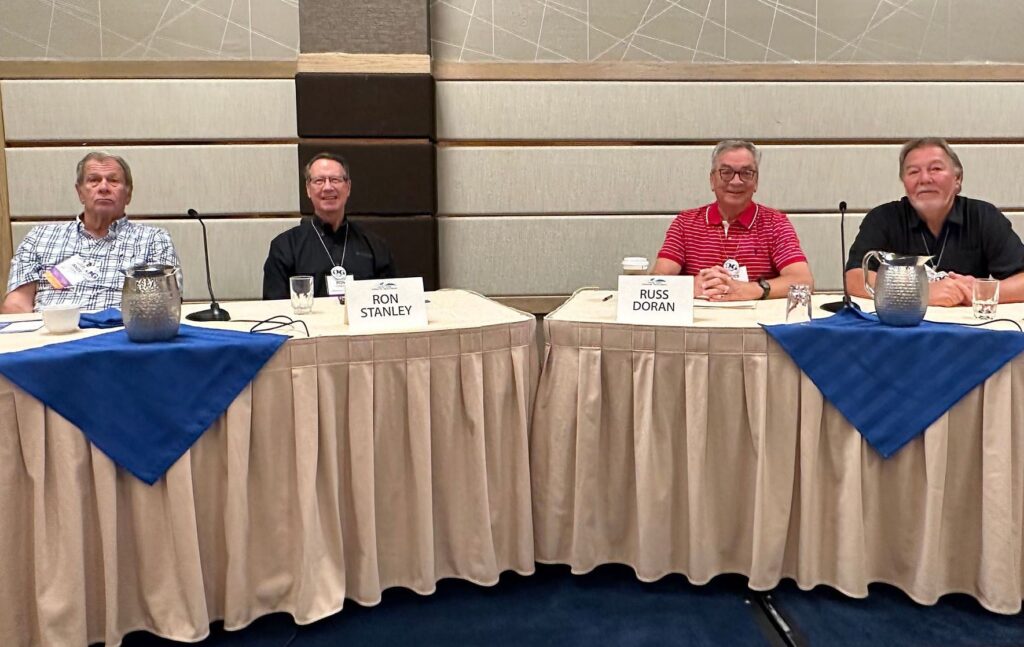Pac-West Panel: Relationships Build Better Companies


(l-r) Cohn, Stanley, Doran and Wheeler (courtesy Pac-West)
Four Pacific-West Fastener Association panelists with successful fastener careers credited relationships for company growth.
Russ Doran cited an example of how relationships developed in an association pay off. He had a cooling tower customer desperate for specialized fasteners. Through his industry relationships he found a supplier who could “ship by end of week.”
“Relationships are invaluable,” Doran said. Beyond supplies, relationships can yield “meaningful ideas,” Doran added.
“Relationships = priceless,” Bruce Wheeler agreed. He credited his success in business on relationships. He recalled a customer needing a fastener and was having trouble sourcing it. Wheeler happened to be in Taiwan when contacted by the customer. Wheeler turned to the manufacturer he was visiting and had been promoting turnaround time. Wheeler challenged the manufacturer to “prove it to me” and asked him to supply the fastener and airship it to Wheeler’s U.S. customer. Before the end of the week Wheeler was able to contact the customer and announce the shipment was on a plane. “That’s the value of relationships,” Wheeler declared.
It is more than customers, employees and suppliers, Andy Cohn said. In addition to executives at the headquarters, Cohn added your relationships with branches can be important too. “Listen to reps,” Cohn added.
Part of relationships is humans answering phones, Cohn finds.
Doran said he had a policy of “always meeting the cold call customer.”
Doran cautioned “don’t burn bridges.” A local distributor might lose a customer to a “big business” moving into the territory, but that customer may find out the change to a “jet vs. a school bus” isn’t how they work best.
Ron Stanley promoted participating in fastener associations such as Pac-West to develop relationships.
All four panelists have held multiple fastener association board roles.
Distributors once dealt with nearly all domestic manufacturers such as Bethlehem Steel, RB&W and Camera. But as imports became less expensive, distributors had to buy to be competitive.
Cohn noted that the U.S. Fastener Quality Act of the 1990s validated imports because specifications were required of all manufacturers, which equalized imports.
Doran recalled growth in imports was partly due to a change from foreign government-owned plants where the fasteners shipped may be “floor sweep” to privately-owned manufacturers meeting standards.
The panelists emphasized education throughout the company. Stanley encouraged sending employees to Fastener Training Institute programs. Overall, 3% of staff time should be in education, Stanley advised.
Wheeler suggested a half-an-hour, once-a-week of “screw school.” Beyond training employees, “You’ll learn who doesn’t want to learn,” Wheeler pointed out.
Doran cited a result of education avoids another problem: “We all get a black eye when we have a failure.”
Doran said that while “cleaning up inventory is the least likable thing to do,” inventory control is vital to the success of a distributorship.
Cohn observed that failure to manage inventory means it “goes in the back of the warehouse until you die or sell it.”
Every company has a culture, Wheeler said. The culture is either “driven from the top or employee-driven.”
“You as the leader set the tone and lead by example,” Wheeler said.
Acknowledge that sometimes a customer sets culture, Cohn said.
Stanley advised looking to the women on your staff for developing capable employees as a source of good employees not developed in previous generations. His comment drew applause at the Pac-West session, which included many women active in the industry.
He recalled his wife, banking executive Heidi Stanley, being asked at banking meetings, “What bank is your husband with?”
Wheeler advised looking for employees having trouble with their jobs. “Work real hard with that individual,” he suggested, but added, “some just have to be fired” in the end.
Looking ahead, Stanley said today’s leaders need to be aware future generations will have different value systems than the outgoing boomers.
Wheeler, who acknowledged work dominated his early career, recommended establishing a “work / life balance.” Web: Pac-West.org
The panelists:
- Cohn started in fasteners as a warehouseman for Bay City Screw in 1974. He acquired Duncan Bolt in 1988. When he started, purchase orders were written and sent by mail. Employees were worried about the first computers in distributorships, Cohn recalled. “What are you going to need salespeople for?” they worried.
- Doran, who had been president of Würth Timberline until 2014, started in the industry in 1990 with A&I Bolt & Nut. Doran recalled counter sales dominating A&I’d business until Fastenal entered the local market. A&I then expanded into packaging and VMI.
- Wheeler took a temporary fastener job to pacify his father in 1973. Then fasteners were measured on the Johnson balance scales and he often put a few extra fasteners in each until caught by his father. His first sales territory was Detroit when sales people ripped out pages from Yellow Pages to find potential customers to call on. Wheeler headed Star Stainless from 2014 until retiring.
- Stanley initially went from college to another industry, but was drawn back to Empire Bolt & Screw by his father – the Empire founder – Larry Stanley. Ron Stanley is still active with Empire – which marked its 50th anniversary in 2022.



There are no comments at the moment, do you want to add one?
Write a comment